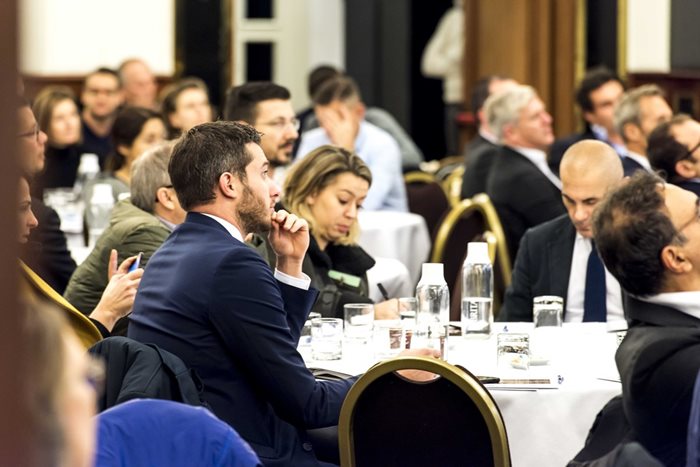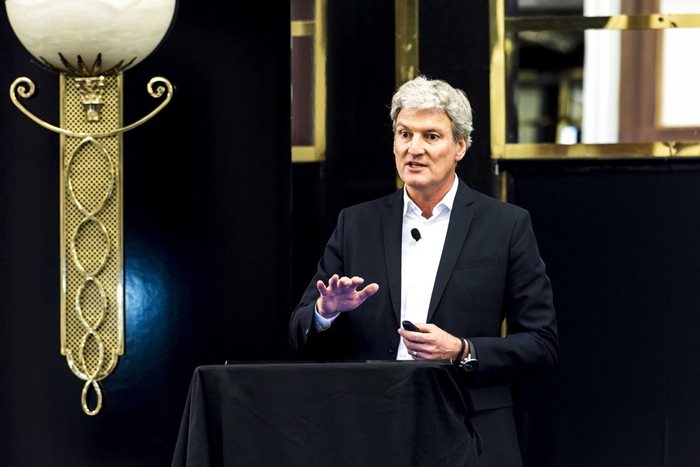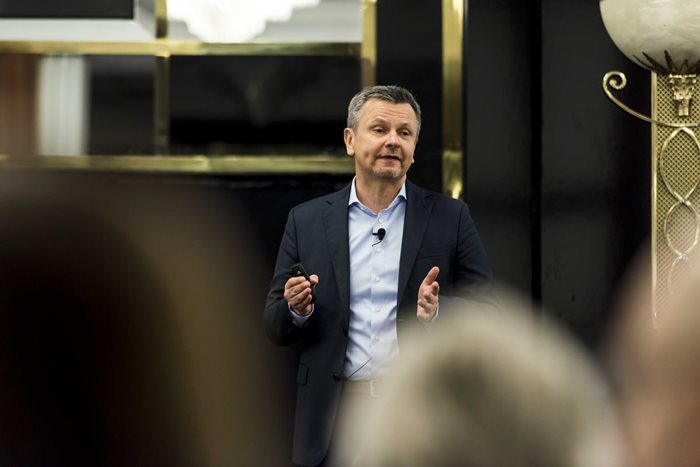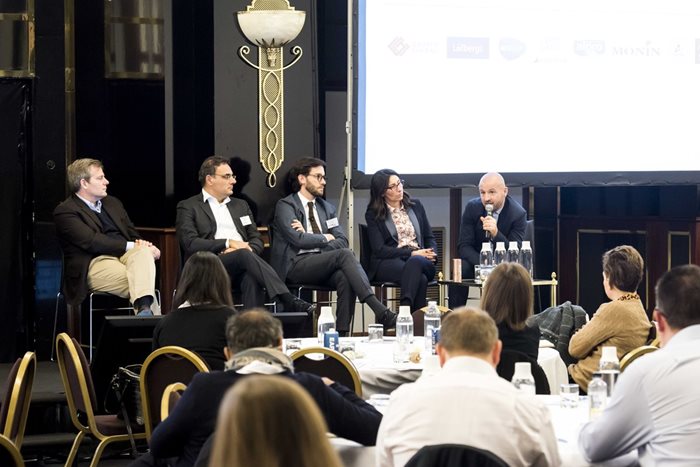Leaders from across the European coffee industry gathered at the European Coffee Symposium in Milan to discuss the changing face of the continent’s coffee industry. It was a momentous three days in the home of espresso examining the re-birth of Italian traditions and a new generation of coffee professionals innovating the industry. By Tobias Pearce

In 1998 Caffè Nero had just embarked on a mission to bring Milanese coffee traditions to the UK. With their faithful homage to espresso, the fledgling chain broke significant ground in convincing UK consumers to explore a brave new world of Italian coffee excellence. But when co-founder Paul Ettinger woke to discover Starbucks had entered the UK coffee shop market in May that year, he braced his business for a fierce battle on the UK high street.
“But of course, they were actually incredibly beneficial for all of us,” he told delegates. “Because they invested a great deal of resources into developing the market." Indeed, 20 years ago the UK coffee shop sector was a very different place. Café culture was in still its infancy and the now ubiquitous (even ordinary) cappuccino represented the height of sophistication.
Back then, Ettinger could scarcely imagine the US coffee giant would become a key catalyst for the development of the dynamic and innovative UK coffee industry we know today. Today, the UK coffee shop eco-system has never been richer for its brand diversity and flourishes on consumer knowledge imbued by the marketing clout of big business.
The European coffee shop industry, too, is built on symbiosis between small independents and scaled branded chains. From the Italian cultural capital manifest in second wave brands to third wave specialty café culture imported from Melbourne, a thriving coffee community is now firmly established across the continent. As Allegra CEO Jeffrey Young highlighted, there were just 1,000 branded coffee shops in Europe 20 years ago. Today they number nearly 34,000 with turnover of around €20bn. And with the arrival of the first ever Milan Coffee Festival, there was palpable excitement that Italy’s enigmatic coffee market is once again on the cusp of greatness.
“We didn’t come to Milan to demonstrate how good we are or teach Italians how to drink coffee our way – but to share our love of coffee"
- Martin Brok, Starbucks EMEA President
There’s no escaping the excitement generated by Starbucks’ Reserve Roastery, which opened in Milan in September 2018. A hugely symbolic home-coming for the Seattle-based chain’s brand narrative, all eyes are now on the Italian coffee industry, which many leaders believe is on the cusp of a caffè renaissance. Young described an ‘epiphany’ among Italian consumers for premium coffee shop experiences, and there was broad agreement that the arrival of the world’s largest coffee shop chain could energise innovation in the Italian coffee shop sector.
In a market scarcely ventured by international branded chains, attendees expressed confidence that Starbucks could be an ambassador for a new coffee era in a staunchly traditional market. “Starbucks is an excellent ambassador because they are not Italian,” commented Gruppo Cimbali Marketing and Communications Director, Simona Colombo.

Starbucks EMEA President, Martin Brok
Kicking off the speakers’ session, Starbucks EMEA President, Martin Brok, presented the remarkable story of Howard Schultz’s 1983 journey to Milan – from building Starbucks’ brand around the city’s espresso house traditions and coming full-circle to enter the Italian market 35 years later.
But much more than just a tourist attraction, purveyor of rare coffees and immersive café experience, Brok emphasised the Reserve Roastery’s contribution to the fabric of Milan’s community. Highlighting that more than 5,000 people had applied for 250 barista jobs at the store, Brok said amid huge range of coffees available – including coffee gelato – single espresso remained the top selling beverage. “Who would have thought?” he joked.
“We didn’t come to Milan to demonstrate how good we are or teach Italians how to drink coffee our way – but to share our love of coffee,” he added. “We’re not a coffee company serving people, we’re a people company serving coffee.”
There are have also been big developments in Europe’s largest coffee shop chain, Costa Coffee, which in August 2018 was purchased by Coca-Cola for £3.9bn. “This is a new era for us”, declared Costa Europe Managing Director, Andrzej Jackiewicz. His address focused on the opportunities and challenges facing scaled branded chains refining their propositions in a new era of scaled excellence and 5
th Wave thinking. Reiterating that consumer expectations have never been higher, Jackiewicz said maintaining consistency of delivery – from coffee shops, to vending machines and FMCG products was vitally important.
Jackiewicz also acknowledged that scaling excellence across quality and delivery was challenging across different retail sectors. The high-dwell time requirements of a town centre store, he acknowledged, will differ from those in a fast-paced airport environment. Brand flexibility around a robust core offer is therefore essential, he said.

Costa Europe Managing Director, Andrzej Jackiewicz
“Can we deliver the same quality of coffee and overall across all of these locations? I think the answer probably should be ‘yes’, but it’s easier said than done. The quest of maintaining quality and delivery is the ongoing battle that every business is having,” he said.
Can innovation and tradition co-exist?
Upholding tradition at the expense of innovation can be a pyrrhic victory for any industry. Allegra research shows nearly 40% of industry leaders in Italy believe traditional coffee culture is inhibiting the growth of branded chains, almost double the European average.
So, how can independent cafés and branded chains develop a formula worthy of Italian’s beloved espresso tradition? The short answer is: the signs are encouraging but it will be a long and difficult road ahead. Indeed, Italian industry leaders surveyed by Allegra are significantly less inclined to agree that coffee shop visits have increased compared to last year than the European average, which shows more than two thirds perceived an increase.
“Our café was born out of passion, but communicating speciality is done more effectively by the mainstream”
- Carlos Eduardi Bitencourt, founder and MD, Cafezal
Carlos Eduardi Bitencourt is founder and MD of Italian specialty coffee shop, Cafezal, credited with being Milan’s first specialty small batch roaster. He shared his experience broadening tastes among traditionally-minded customers. Upon opening in 2014, an elderly customer warned Bitencourt’s specialty business would fold within the first six months due to its premium price tag. But little by little, and with some painstaking encouragement, that same customer is now a regular – and Bitencourt’s coffee shop business is still going strong. “Our café was born out of passion. Other independents are picking up the trend, but communicating speciality is done more effectively by the mainstream,” he said.

For Italy’s premium coffee sector, each conversion to the specialty cause is a small victory. But as Gruppo Cimbali Marketing and Communications Director, Simona Colombo reiterated, for small unscaled businesses, the cost can be high. “It's going to be challenge because €1 espresso is the status quo,” she said. “Once you understand why people are willing to paying more, then you can start moving the trend. For La Cimbali this is a fantastic opportunity but to see this happening in our home town, Milan. The world I dreamt of is finally here in Italy.”
Another voice from Italy’s world-renowned espresso machine industry, La Marzocco Marketing Director, Chris Salierno, concurred that the time was right for a new era in Italian coffee. “We have 60 million people seeking a quality experience. We’re in the right place at the right time,” he said.
There’s no doubt that these are exciting times for the Italian coffee shop industry. But operators seeking expansion are right to tread mindfully in the country that provided the blueprint for so much of the coffee shop industry we know today. Even the mighty Starbucks has pledged to enter Italy with ‘humility and respect’, but all established players must work to support a burgeoning generation of coffee innovators by championing the craft forged in Milan more than a century ago.
.jpg.aspx?lang=en-GB&width=700&height=149)